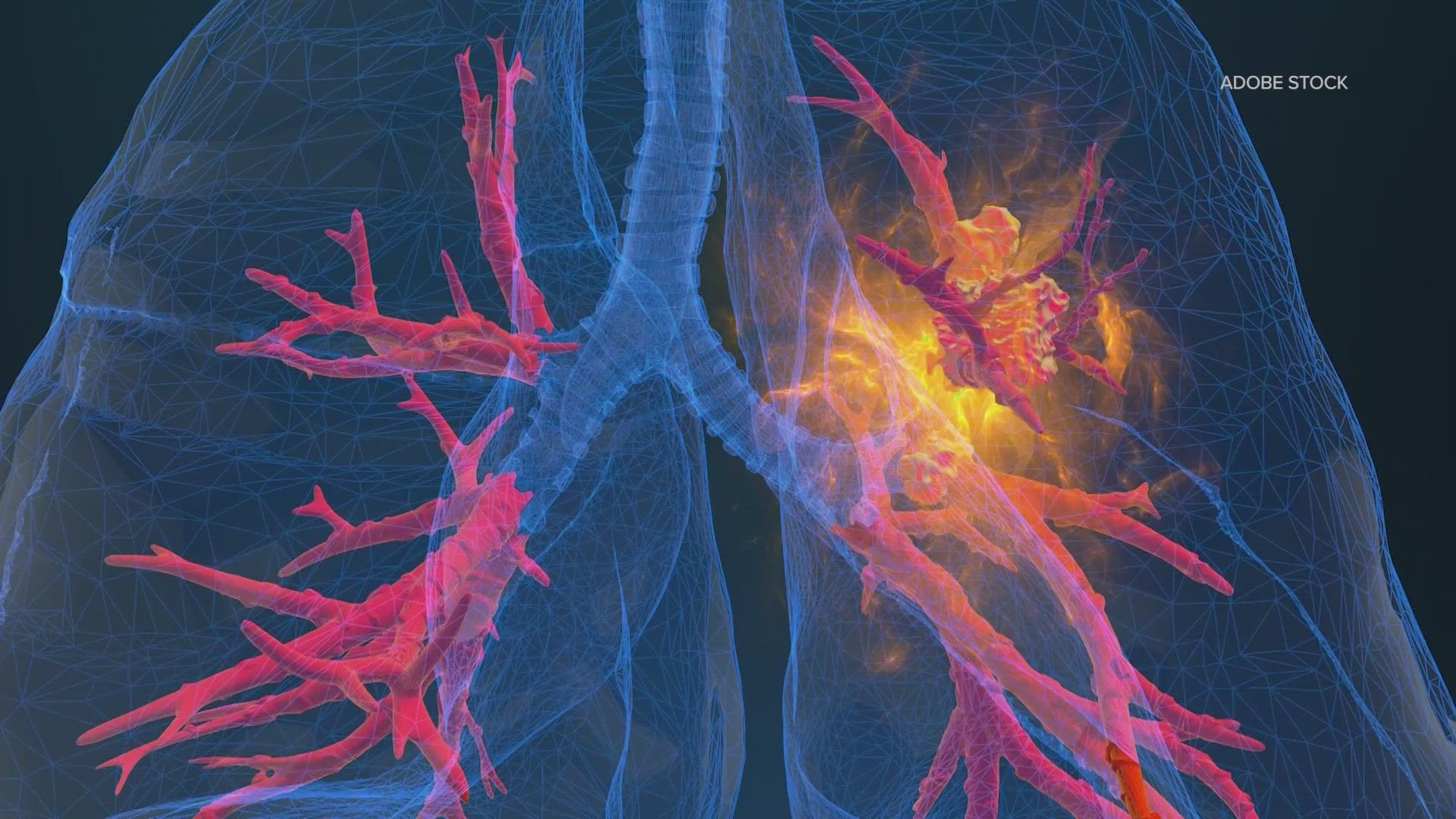SEATTLE — As lung cancer rates in the U.S. have been decreasing in recent years, new research is showing younger women are slightly outpacing men in lung cancer rates.
The findings were published in the Journal of the American Medical Association in October, showing younger women between ages 35 to 54, are seeing slightly higher incidents of lung cancer than men in the same age group.
Among that age group is Marnie Clark of Poulsbo. Clark said she was in the best shape of her life at age 54, in 2021. But that year, in October, Clark felt something strange.
"It was kind of a numb sensation; it started working its way up my leg," Clark said.
After a month of doctor visits, Clark said she got the shock of her life.
"Come to find out after a series of CT scans that I had a lung tumor, that had metastasized to my brain," Clark said
For the mother of three, none of it made sense.
"As someone who has never smoked in her entire life, except for that one time in high school, it was quite a shock," Clark said.
Clark is among the many women who develop lung cancer despite being "never smokers."
"Lung cancer in general is a huge public health problem," said Dr. Keith Eaton, an oncologist specializing in lung cancer at Fred Hutch Cancer Center.
Eaton said the findings don't necessarily mean lung cancer is rising among women in general, but that the gender ratio has been flipped, notably, as overall cigarette smoking rates in the U.S. are trending down.
"One of the generalities that we had is that men are more affected by lung cancer than women. This was primarily due to, you know, smoking habit. But now, that is not true and in fact, it's inverted. So for people 'in the know,' that was interesting," Eaton said.
The reasons why younger women are impacted are unclear. But Eaton said this is a good opportunity to explain that smoking isn't the only link to lung cancer.
Eaton pointed to secondhand smoke, radon exposure and diesel emissions as possible factors.
"But the vast majority of it is unexplained," Eaton said.
Screening for lung cancer is typically for patients with a history of smoking. The American Cancer Society recommends the low dose, CT scan screening for people who smoke or used to smoke, and those who have at least a 20-pack-year history of smoking.
But Eaton said there are no specific screening guidelines for people who have no history of smoking.
Eaton added paying attention to symptoms can help, something Clark also recommends. She said to also be aware of one thing.
"You don't have to smoke to get lung cancer, all you need are lungs," Clark said.

